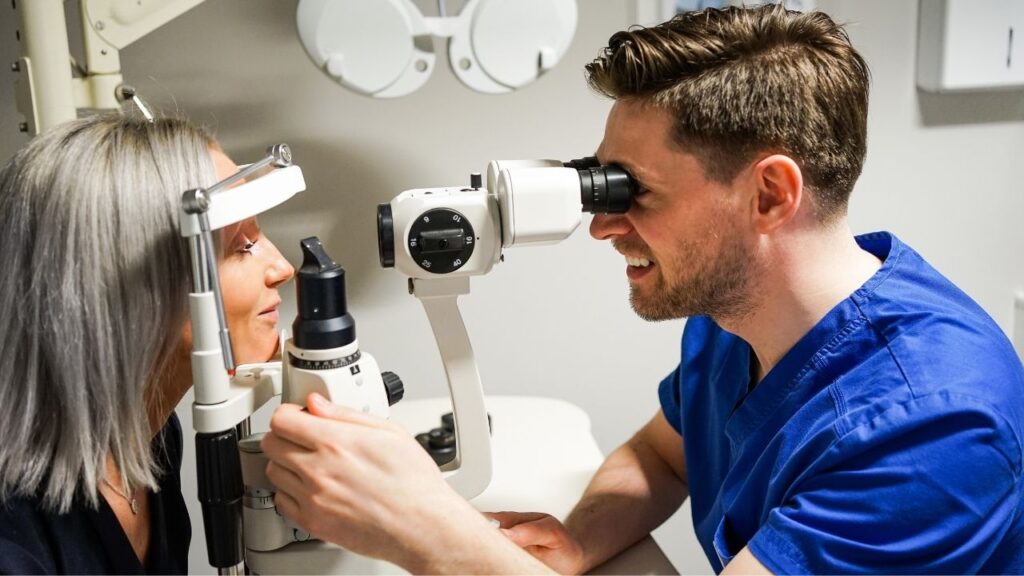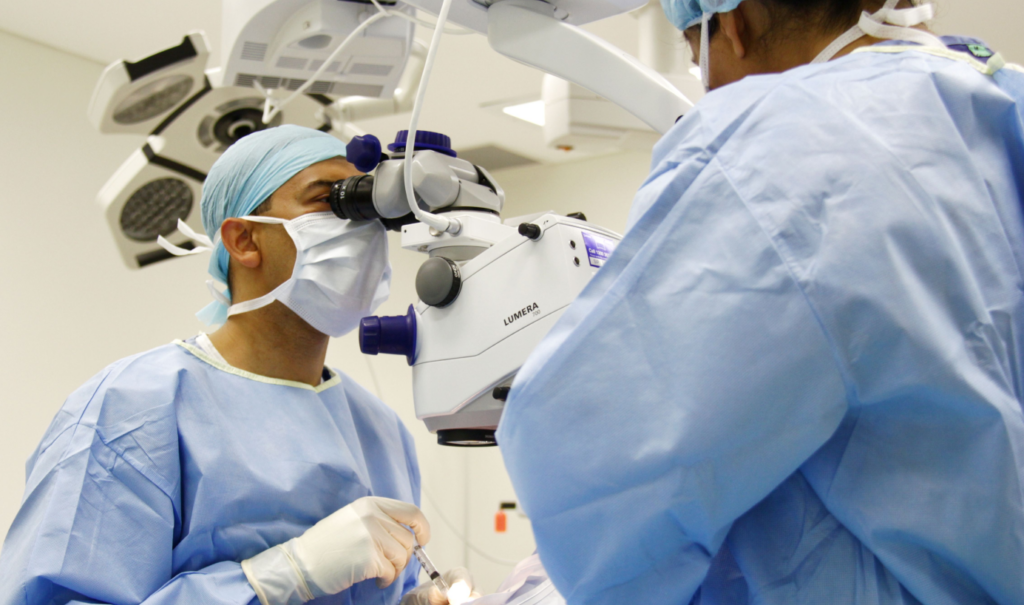Cataracts, a common age-related eye condition, can significantly impact your vision and quality of life. However, with cataract surgery in Sydney, you can regain clear and sharp vision, enabling you to once again enjoy the world around you to the fullest.
Understanding Cataracts and Vision Impairment
Before exploring the benefits of cataract surgery, it is essential to understand what cataracts are and how they can lead to vision impairment.
In conclusion, cataract surgery Sydney is a safe and effective way to improve your vision and regain your independence. By understanding the cataract development process, the surgical procedure, and the benefits of this transformative surgery, you can make an informed decision and take the necessary steps to restore your vision.
Cataracts are a common age-related eye condition that affects the clarity of the lens in the eye. The lens is normally clear, allowing light to pass through and focus on the retina at the back of the eye. However, with cataracts, the lens becomes cloudy, scattering the light entering the eye and causing vision problems.
What are Cataracts?
Cataracts occur when the natural lens of your eye becomes cloudy, causing blurred vision and decreased visual acuity. They can develop gradually over time, and while age is a primary risk factor, other factors such as genetics, smoking, and certain medical conditions can contribute to their formation.
As cataracts progress, they can lead to a range of symptoms, including blurry or double vision, sensitivity to light, and difficulty seeing at night. Many people describe cataracts as similar to looking through a foggy window, where objects appear hazy and less defined.

The Connection Between Cataracts and Vision Loss
Cataracts can cause various visual impairments, including difficulty with reading, driving, and recognizing faces. You may experience increased sensitivity to glare and a loss of contrast, making it challenging to navigate in low-light conditions. Additionally, colors may appear dull or yellowish due to the clouding of the lens.
It’s important to address cataracts promptly to prevent further vision deterioration. While cataracts are primarily associated with aging, they can also develop due to eye injuries, certain medications, and prolonged exposure to ultraviolet light. Regular eye exams are crucial for detecting cataracts early and discussing treatment options with your eye care provider. Read more about ultraviolet light on https://solar-center.stanford.edu/about/uvlight.html
The Process of Cataract Surgery
Fortunately, cataract surgery offers a reliable solution for restoring clear vision. The procedure involves removing the cloudy lens and replacing it with an artificial intraocular lens (IOL).
Pre-Surgery Consultation and Examination
Prior to the surgery, you will undergo a thorough consultation and examination with a skilled cataract surgeon. They will assess your eye health, discuss your visual goals, and determine the most suitable IOL for your needs.
During this consultation, the surgeon will also explain the different types of IOLs available, such as monofocal, multifocal, and toric lenses. Each type has its own benefits and considerations, and the choice will depend on factors like your lifestyle, occupation, and overall eye health.
The Surgical Procedure Explained
Cataract surgery is typically performed as an outpatient procedure, meaning you can go home on the same day. It is performed under local anesthesia, ensuring your comfort throughout the surgery.
Before the surgery begins, the surgical team will clean the area around your eye and administer eye drops to dilate your pupil. This allows the surgeon to have a better view of the lens and facilitates the process of breaking it up for removal.
During the procedure, the surgeon will make a small incision in your cornea and use advanced techniques to break up and remove the cloudy lens. They will then delicately insert the new IOL, tailored to your prescription, restoring clear vision.
The entire process is relatively quick, usually lasting around 15-30 minutes per eye.
After the surgery, you will be given specific instructions on post-operative care, including how to use prescribed eye drops and any restrictions on activities. It’s important to attend follow-up appointments to monitor your healing progress and ensure optimal results.
Benefits of Cataract Surgery
Cataract surgery offers numerous benefits that can significantly enhance your vision and overall well-being.
When considering cataract surgery, it’s important to understand the full scope of advantages that come with this procedure. From immediate improvements in vision to long-term benefits, the impact of cataract surgery goes beyond just restoring clarity.
Immediate Improvement in Vision
One of the most significant advantages of cataract surgery is the immediate improvement in vision. Many individuals experience enhanced clarity and sharpness shortly after the procedure, allowing them to see the world in vivid detail once again.
After cataract surgery, colors may appear more vibrant, and objects may seem more defined. This newfound visual acuity can have a profound impact on daily activities, such as reading, driving, and enjoying hobbies.
Long-Term Advantages of Cataract Surgery
Beyond the immediate benefits, cataract surgery provides long-term advantages for your vision. With the new artificial lens, your vision can remain stable for many years to come, reducing the need for constant prescription changes and maintaining visual acuity.
Moreover, cataract surgery can contribute to overall eye health by reducing the risk of developing other eye conditions. By removing the cloudy lens affected by cataracts, the surgery can potentially lower the chances of experiencing issues like age-related macular degeneration.
Furthermore, cataract surgery can also help prevent or alleviate other vision-related issues, such as glaucoma or retinal detachment.
Choosing the Right Cataract Surgeon in Sydney
When considering cataract surgery, selecting a skilled and experienced surgeon is crucial to ensure optimal results and a smooth recovery.
With the advancement of technology and surgical techniques, cataract surgery has become a common and highly successful procedure. However, the outcome of the surgery heavily relies on the expertise of the surgeon performing it. Therefore, it is essential to do thorough research and choose a surgeon who not only has the necessary skills but also stays updated with the latest advancements in the field. Click here to read more about advancement of technology.
Factors to Consider When Choosing a Surgeon
Take the time to research and find a surgeon who specializes in cataract surgery and has a proven track record of success. Look for credentials, experience, and patient reviews to gauge their expertise and patient satisfaction rates.
Furthermore, it is beneficial to schedule consultations with potential surgeons to discuss your specific case, ask questions, and assess their communication style. A good surgeon will take the time to listen to your concerns, explain the procedure in detail, and make you feel comfortable and confident about moving forward with the surgery.
The Importance of Post-Surgery Care
Additionally, post-surgery care plays a vital role in the overall success of your cataract surgery. Your surgeon should provide detailed instructions and regular follow-up appointments to monitor your healing progress and address any concerns that may arise.
Proper post-operative care can help prevent complications, ensure a speedy recovery, and optimize your visual outcome. It is crucial to follow your surgeon’s recommendations diligently, attend all follow-up appointments, and promptly report any unusual symptoms or changes in your vision.

Frequently Asked Questions About Cataract Surgery
Is Cataract Surgery Painful?
No, cataract surgery is typically a painless procedure. The use of local anesthesia ensures you remain comfortable throughout the surgery. After the procedure, you may experience mild discomfort or sensitivity, which can be managed with prescribed medications.
It’s important to note that advancements in surgical techniques and technology have made cataract surgery a highly safe and efficient procedure. The skilled ophthalmic surgeons and medical staff work diligently to ensure your comfort and well-being throughout the entire process. From the moment you arrive at the surgical center to your post-operative care, you are in capable hands.
What is the Recovery Time for Cataract Surgery?
Recovery time varies for each individual, but most patients experience significant improvement in their vision within a few days to a week after surgery. However, it is vital to follow your surgeon’s post-operative instructions to ensure a smooth and timely recovery.
During the recovery period, it’s normal to experience some fluctuations in your vision as your eyes adjust to the intraocular lens. Your eye care team will provide you with detailed guidelines on post-operative care, including the use of prescribed eye drops and any restrictions on physical activities. By following these instructions diligently, you can support the healing process and optimize your visual outcomes.
Learn more about advance technology of catarct surgery at: The Latest Advances in Cataract Eye Surgery Techniques

